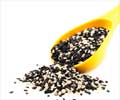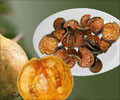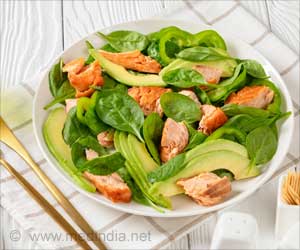Researchers are conducting first-ever clinical experiments to evaluate the potential cardiovascular health effects of Nature’s Pearl Muscadine Grape Seed Supplement.
Researchers at Wake Forest University Baptist Medical Center are conducting first-ever clinical experiments to evaluate the potential cardiovascular health effects of Nature’s Pearl Muscadine Grape Seed Supplement.
The influence of this supplement on blood vessel function is being evaluated in 50 participants who are suffering from cardiovascular disease or are at high risk for developing it.The researchers will also determine whether there are effects on cholesterol and other fats in the blood, blood sugar levels and vessel inflammation, which are all associated with increased risk of cardiovascular disease.
As compared to any other variety of grapes, Muscadine grapes are more potent in antioxidants that prevent of slow the oxidative damage to the body. Lab experiments have shown that grape seeds have higher antioxidant capacity than grape skins.
Various human studies have shown improved antioxidant capacity and blood vessel function when grape seed supplement is added to the diet, though the studies did not specifically include muscadine grapes that have extremely high levels of antioxidant and anti-inflammatory compounds as compared to other fruits.
“The goal of the current study is to determine if daily doses of the Nature’s Pearl supplement, which is specially prepared to maximize its natural antioxidant and anti-inflammatory concentrations, will have a favourable effect on cardiovascular risk factors,” said Dr. David Herrington, lead investigator and a professor of cardiology.
The study participants aged between 18 to 65 years will be randomly assigned to take either two capsules of Nature’s Pearl Muscadine Grape Seed Supplement or a placebo daily for the first four weeks.
Advertisement
Ultrasound technology is used to determine blood vessel function. The researchers measure blood flow in the brachial artery, the major vessel in the arm, both before and after the arteries are constricted with a blood pressure cuff.
The test is used in the brachial arteries because the heart’s arteries cannot be directly imaged with ultrasound. But atherosclerosis is a disease that affects vessels throughout the body, and the test is considered a good indicator of overall vessel function.
The researchers will also measure any effects on total cholesterol, low-density lipoprotein or “bad” cholesterol, triglycerides, high-density lipoprotein or “good” cholesterol, blood sugar levels and markers for inflammation, such as C-reactive protein and interleukin-6.
The results of the study are expected to be analysed early next year.
“Cardiovascular disease is a significant problem in this country so it is worthwhile to examine foods that may have medicinal benefits. In this case, our goal is to determine whether the Nature’s Pearl supplement, which looks promising because of its extremely high antioxidant and anti-inflammatory content, will positively affect artery health,” said Herrington.
Source-ANI
SRM /J











